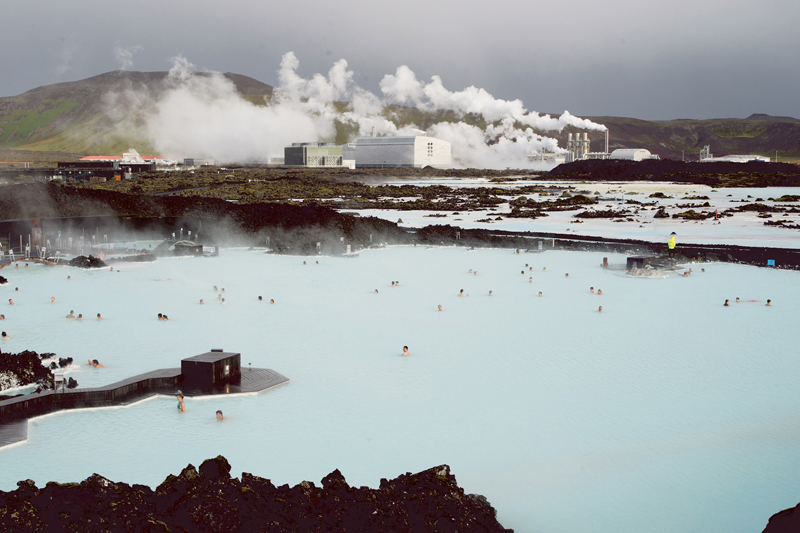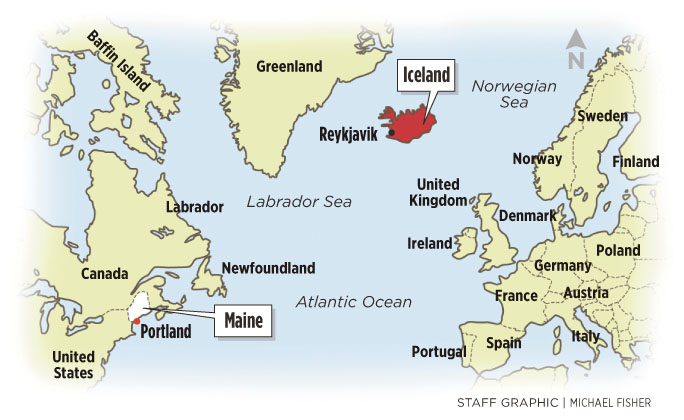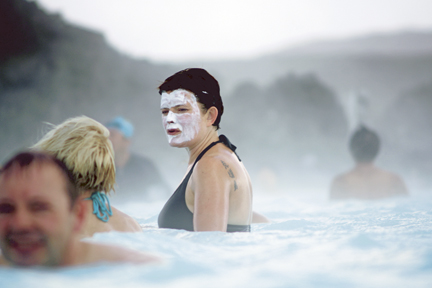We have so much in common. Every day gave me new opportunities for comparisons. It made me wonder whether the “Way Life Should Be” sign should move 2,400 miles east.
Iceland’s fishermen catch the same groundfish found in the Gulf of Maine – cod and haddock – but the fisheries here are so well managed that there are plenty of fish in the sea, and fishermen earn top salaries.
Panhandlers? None that I can see in Reykjavik, a city almost twice the size of Portland.
The hipsters here are hipper. The women are more stylish. The streets are cleaner.
Even democracy here seems healthier, with 89 percent turnout of those of voting age, compared to Maine’s 69 percent.
People are younger. The median age is 35.9 – nearly eight years younger than in Maine. Because they live on an island, I suppose, young Icelanders just can’t just move to Massachusetts to find a job like they do in Maine.
Energy costs? Don’t get me started.
Over the last 10,000 years, there have been 20 volcanic eruptions on Earth at or greater than level 5 on the Volcanic Explosivity Scale (that’s very, very explosive). All of the eruptions have occurred in Iceland.
So Icelanders could all perish at any minute. But they have taken advantage of their proximity to hot magma to build five geothermal power plants that produce one quarter of the island’s electricity and fill the hot water and heating needs for 87 percent of all buildings.
The tour guide at the Hellisheidarvirkjun heat and power station (the largest in the world), told me he pays $67 a month for heat and hot water in his home.
In Reykjavik, a hot-water system installed under sidewalks and streets melts snow and ice over an area that would hold nine NFL football fields.
Not that they get much snow.
During the peak of the winter season, there’s only a 5 percent chance that there is any accumulation of snow on the ground in Reykjavik, thanks to the warming power of the Gulf Stream, which completely misses Maine.
Iceland was hit harder than Maine by the 2008 financial crisis when its banking system collapsed and the value of its currency, the kronur, plummeted. So I was surprised to see that the country appears to be recovering just fine. Its unemployment rate is now below 5 percent, and the government’s budget is almost balanced. Its Scandanavian-style socialist system remains intact, including its popular universal health care system.
Some financial experts say that the goverment’s decision to reduce goverment spending and let its three major banks fail shielded taxpayers and government finances from bearing of the cost of the financial crises and allowed its economy to recover faster than countries that had propped up their banks and spent a lot of money.
One mystery is how this tiny nation, with a population no bigger than that of Maine’s Cumberland and Sagadahoc counties combined, can be world player when it comes to music, producing talent with strange names, like Bjork, The Sugarcubes, Mugison and mum.
The explanation can be found in Iceland’s past, said Gunnar Halldorsson, a former professor at the University of Iceland and an expert on Icelandic language and literature.
Until the 19th century, he said, there weren’t many towns or villages. People lived on isolated farms. For entertainment, they would visit each other and sing and tell stories. A good performance earned them the best bed and as much food as they wanted.
Moreover, the nation’s small size has left its people with a bit of inferiority complex and a desire to prove itself to other nations on the world stage, he said.
“That’s also why Icelanders catch immediately all new technology, all new waves in culture and fashion both from Europe and America.”
On Saturday night, I had a beer with computer programmer, Orri Hafsteinsson, 29, whom I met while taking photographs downtown that night.
Like almost everyone I met here, he spoke English fluently. He painted a dark view of America as an intimidating security state that spies on other countries and its own people. I tried to shift the conversation to the most positive American images I could conjure – the natural beauty of Maine. I mentioned that the best visit time is October because of the fall foliage.
“Foliage?” he asked, “What is this word?”
“It means leaves,” I replied. “Something you don’t have because your country has no trees.”
I pulled out my smartphone and showed him photos of my family hiking the Appalachian Trail in Maine just north of Brownville Junction. His shoulders slumped.
I then clicked on photo of Main Street in Yarmouth, where I live, and his eyes lingered on the deep blue sky above the steeple of the First Parish Congregational Church.
“This is what the sky looks like when there are no clouds,” I said. “It’s blue.”
He frowned.
Reykjavik is “mostly cloudy” 89 percent of the time, according to weather data.
“A day with a no clouds. How often does that happen here?” I asked Orri.
“In my whole life, I can remember five days,” he said.
“Really? How did you feel to see a cloudless sky?”
He looked into his beer.
“It was like I was living in another country,” he said.
Like Mainers, people in Iceland complain about being isolated, but they beat us on that one too. We may be isolated in the corner of the richest, most powerful country in the world – but they are stuck in the middle of the North Atlantic.
The next day, I flew home to face high energy costs, a shabby fashion scene, the world’s most expensive health care system and a dysfunctional Congress ready to shut down the government.
At Logan, I was greeted by a police officer tugging on a German shepherd. The dog, which was sniffing everyone who passed him at the bottom of the escalator, let me go but lunged at a terrified young Icelander who had a sandwich in his backpack.
Welcome home, I thought to myself. Thank God the fall foliage season is just around the corner.
Tom Bell can be contacted at 791-6369 or at:
tbell@pressherald.com
Twitter:TomBellPortland
Send questions/comments to the editors.





Success. Please wait for the page to reload. If the page does not reload within 5 seconds, please refresh the page.
Enter your email and password to access comments.
Hi, to comment on stories you must . This profile is in addition to your subscription and website login.
Already have a commenting profile? .
Invalid username/password.
Please check your email to confirm and complete your registration.
Only subscribers are eligible to post comments. Please subscribe or login first for digital access. Here’s why.
Use the form below to reset your password. When you've submitted your account email, we will send an email with a reset code.